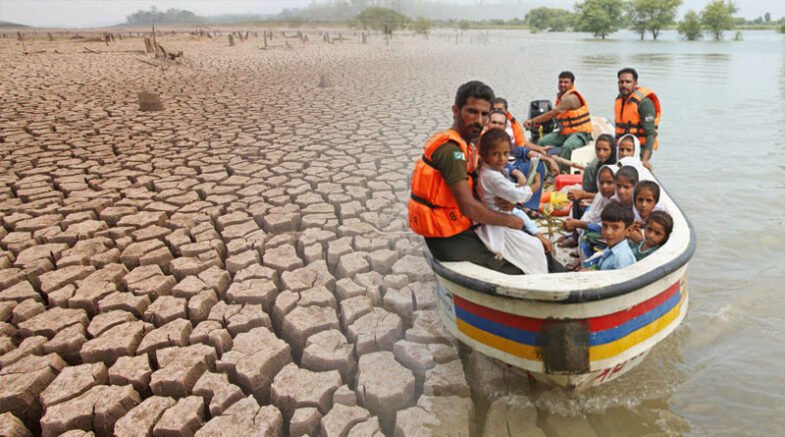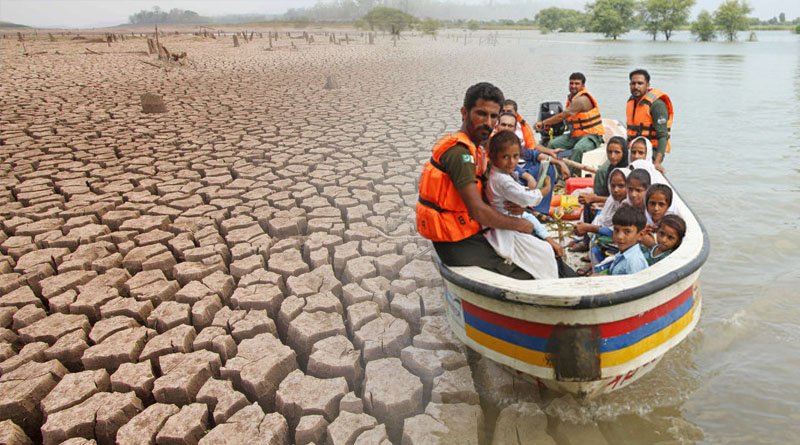The workshop was attended by selected journalists covering environmental issues /topics from Sindh, Punjab, KP, Balochistan, and Gilgit-Baltistan.

A three-day workshop on natural disasters and environmental reporting was held in collaboration with DW Academy (DWA) and Radio News Network (RNN) to train participants in constructive reporting skills on environmental topics such as natural disasters and climate change.
They were also given the opportunity to hear expert opinions on climate change. DW Academy’s Atif Tauqeer, Atif Baloch, and Dina Selbeck explained to the journalists the methods of reporting on various environmental topics and the principles of constructive reporting, as well as the importance of scientific data in constructive reporting, during various sessions of the workshop.
The workshop was attended by selected journalists covering environmental issues /topics from Sindh, Punjab, KP, Balochistan, and Gilgit-Baltistan.
Participants were divided into groups and engaged in a variety of practical activities. According to Dina Sibulak, climate change is threatening the world, and Pakistan is the eighth affected country, where more problems will arise as temperatures rise in the future. As a result, there is a need for greater awareness of this issue in Pakistan.
According to Dina, only 30% of Pakistanis are educated about climate change and its consequences, while 70% of the country is unaware of the issue.
She stated that global commitments to reduce carbon emissions and transition industries to alternative energy could not be met, despite the fact that Pakistan has agreed to reduce carbon emissions by 50% by 2030 and transition to electric cars, but the implementation is still pending.
Dina mentioned the agreements made to protect the environment from threats and also talked about the violations of the Kyoto Protocol by the industrialized countries. which had legal status but could not be implemented.
The workshop also resulted in the formation of the Constructive Climate Journalism Network (CCJN), a network of radio, print, and digital media platforms for the dissemination of environmental issues and threats. so that more people are aware.
On the first day of the workshop, Lt. Gen. (R) Nadeem Ahmed, a disaster management and climate change expert in Pakistan, informed and briefed the participants on the rapidly changing environmental situation, stating that Pakistan ranks fifth in terms of climate change and global temperature.
It is a country where people, wildlife, and aquatic life have been impacted by natural disasters, rains, and floods in recent years. He stated that where we are suffering from this global problem, district environmental institutions are also suffering from slowness in management.
Nadeem said that from 1850 to 2020, there has been a record increase in global temperature, which is due to the world’s major carbon-producing countries. But until yesterday, these countries refused to accept that the increase in heat was caused by carbon emissions from factories.
He said that the global temperature would increase by 5 degrees by 2080 and that the problems were likely to increase. General Nadeem told the participants that where there is a shortage of local resources to deal with environmental problems, the government in Pakistan does not even take advantage of platforms like GCF, which provide financial assistance in this regard.
Former Federal Minister for Kashmir and Gilgit-Baltistan said that the Indus River has a history of 7,000 years and four countries are fully or partially benefiting from it. Since 1940, when the dams were built, the constant flow of water in the delta has been a problem, he said. The visiting birds that used to come from Siberia and other places are also endangered in the man-made lakes.
